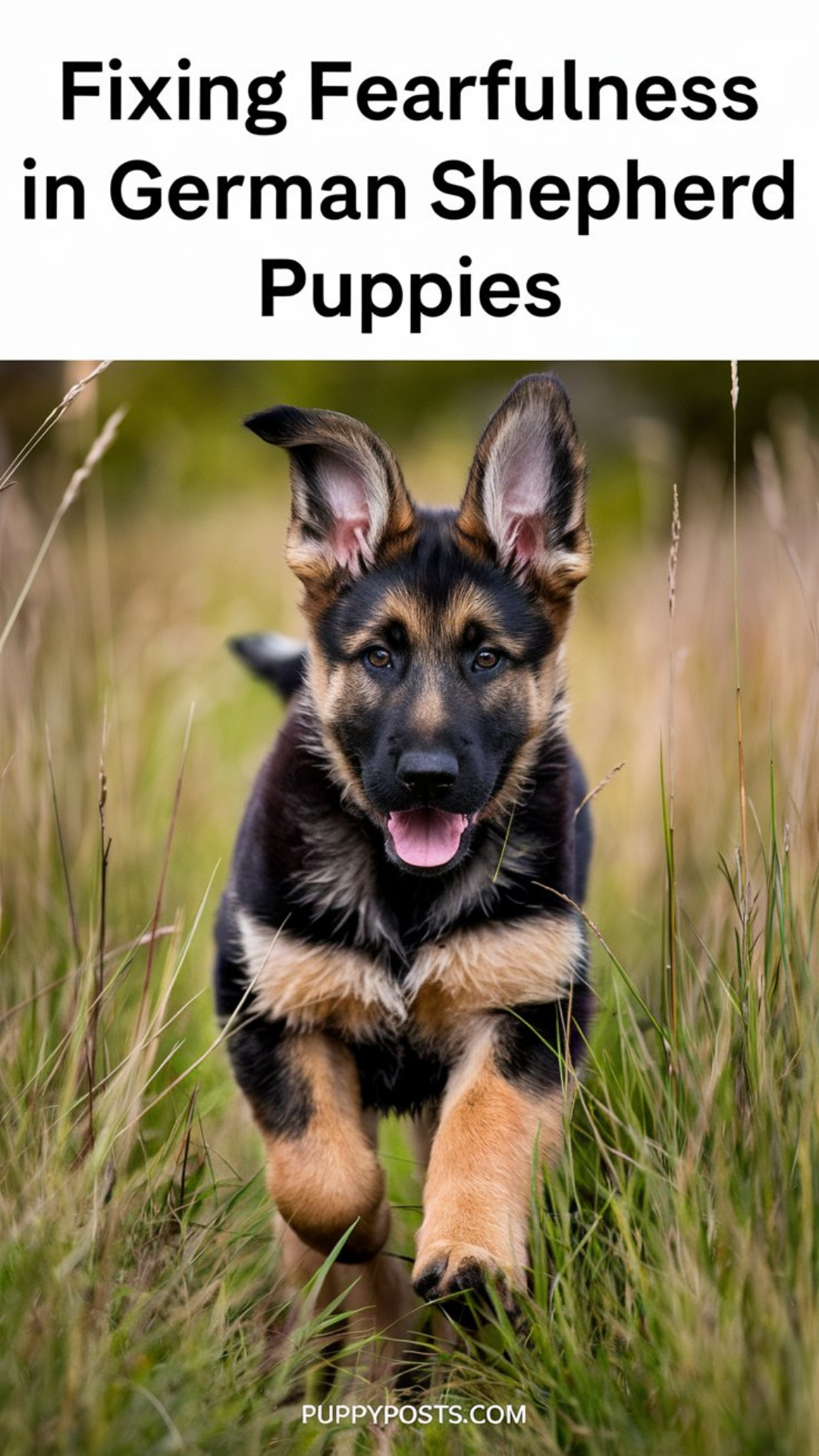Fixing fearfulness in German Shepherd puppies
Listen up—fearfulness in German Shepherd puppies isn’t just a phase you wait out. I’ve spent over a decade as a veterinarian and running a sanctuary for stray dogs and cats, and I’ve seen firsthand how fear in young pups can grow into bigger problems if you don’t handle it right.
German Shepherds are bred to be confident, protective, and smart. When a puppy acts fearful, it’s a signal—not just a bad habit. You need to take control calmly but firmly, because ignoring fear or reacting with frustration only makes things worse.

Understand What’s Behind the Fear
Fearfulness often comes from insufficient socialization, new or overwhelming environments, or previous negative experiences. Figuring out what’s triggering your puppy’s fear is the first step to fixing it.
Step 1: Build a Trusting Routine
Your puppy needs stability. Stick to regular feeding, play, and training times. Use calm, consistent commands so your German Shepherd learns what to expect and feels secure.
Step 2: Socialize Early and Carefully
Expose your puppy to different people, sounds, places, and other animals—but take it slow. Let your puppy observe from a safe distance, reward calm behavior, and gradually increase interaction as confidence builds.
Step 3: Reward Courage with Positive Reinforcement
When your puppy faces something scary and stays calm or curious, praise them with treats, petting, or play. Positive reinforcement teaches your pup that bravery pays off, far better than yelling or punishment.
Step 4: Provide Plenty of Mental and Physical Exercise
German Shepherd puppies are smart and energetic—they need outlets. Daily walks, puzzle toys, and training sessions help reduce anxiety and build focus. A tired pup is a confident pup.
Step 5: Stay Calm and Patient, Avoid Punishment
If your puppy shows fear, don’t scold or force them into scary situations. Keep your tone steady and your actions gentle but firm. Your calm confidence teaches them it’s safe to trust you.
Step 6: Consult Professionals When Needed
Sometimes fear runs deep. If your puppy shows extreme anxiety or aggressive reactions, don’t hesitate to seek a professional trainer or behaviorist’s help. Early intervention makes a world of difference.
Bottom Line
Fearfulness doesn’t have to define your German Shepherd puppy. With patience, steady leadership, and proper socialization, you’ll raise a courageous, loyal companion ready to face the world.







